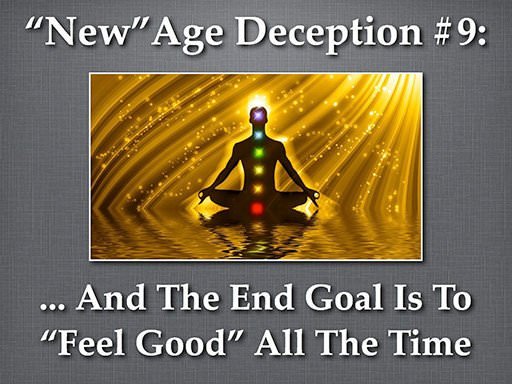Emotions Often Win Over Reason, Feeling-Good Can Matter More than Facts

Facts don’t always win people over to reality or truth. Emotions have a large say in what is accepted. How we feel about information influences us. Many of us are only moved by appeals to emotion to pull, tug, move and push us into accepting something, or into certain actions. The truth and reality of the issue doesn’t matter as much as how we feel about it, or how it makes us feel.

Source
Antonio Damasio discovered that people who had damage to the emotional parts of the brain, had the common issue of having great difficulty making decisions. Emotions are important to decide and choose one thing over another. We value, weigh and judge things based on how we feel much of the time.
Logic, unfortunately, is not a high level concern for a basic human who doesn’t know themselves and these cognitive biases and deficits. Truth matters less than having our emotional desires, wants and wishes satiated through following how we feel about things. A decision is not based on wanting truth, right, good or morality to prevail as an outcome, but on wanting to do something personally based on how they feel.
Some people don’t want to be convinced with reason, because they can’t be. A negotiation with reality must take place for them to change their worldview or selfview. Getting people to an emotional position that gets them to trust you, is a way to influence and manipulate others into accepting something, true or false.
If you get people to admit their problems, their pain, their suffering, and their vulnerability, then they are emotionally open, and you can build on that vision of their problem to propose a solution that fits with what they want and how they feel about something. It might not be the best solution, because they don’t care about what is best, optimal or more right or less wrong. They just want what they want, the full, honest, hard truth be damned, they want to feel good about themselves and get what they want.
About the Antonia Damasio article, someone made a comment about it on Facebook once:
“Research suggests that logical arguments and facts are not what drives change. What really matters is how we make others feel.”
Then I said:
“What do you mean by: ‘What really matters is how we make others feel’?”
They responded:
“I think this means we need to make our best efforts to appeal more to the heart than the head. So what we say to them matters less than how they feel about us, and whether they regard us as worthy of their trust. It points to the importance of caring and connecting with those we talk with, and listening closely to learn how we can best serve their interests and emotional needs.”
Rather than serve truth, reality, existence, no, let’s serve our egos, emotions and false perceptions that have us attached to lower consciousness interests and the emotional attachment towards those things in our lives we don’t want to let go of. That doesn’t cut it for me.
This is what I have to say about the “feel-good” self-focus people try to validate as the best way to speak the watered down “truth” to people.

Source
The article is not really saying “what really matters is how we make others feel.” That’s just one way of manipulating them into a love-bomb “feel-good” emotional state to accept something from you that you want them to accept by relating to you as the “feel-good” producer. They will trust you because you make them feel-good, and then more likely trust and accept the message you deliver, even if it’s false. Emotions can manipulate and deceive.
This is how many beliefs are propagated into consciousness, especially religious personalities, New Age gurus and the like, who peddle fantasies. But those fantasies give us a story that make us “feel-good”. If the messenger can make you feel-good about a message, then you are likely to accept the message.
One way to get people to accept something is by targeting their emotional, feeling, desire, wants saliency, value, importance or weighing capacity. By knowing what someone desires can, you an manipulate them to accept or do things.
The punchline is that logic and reasoning of facts in reality doesn’t often work, because people are more concerned about their self-interested self-concerned self-centered gains and advantage that they will get or lose. How they feel about something is the point, not really how you make them feel.
The feeling of a topic, what “feels right” (whether it is right or not), what “feels good” (whether it is good or not), is related to the saliency (impact, importance, weight) of the information as it relates to them personally. The saliency of information is how you feel about it, what you desire from it, if your desires align with the information, if you weigh the information as important to you personally, if you value the information. Saliency is related to feeling how valuable, important and weighted something is for you. And yes, if you can affect/alter someones feelings about something, then you can affect/alter whether they accept it or not.
Therefore, facts in reality, a truth, doesn’t matter for many compared to how they feel about that something. Whether it is true or false, they will be more likely to accept it or reject it based on the saliency of the information to them, how they feel, the value they place in it, the important and weight it has for them in their lives.
This demonstrates the subjective attachment to self and how we want to feel-good about ourselves, vs. objective detachment to recognize the truth in reality that may not feel-good. People are focused on feel-good deceptions that will sustain and maintain their current condition, their current selfview or worldview, or what will improve their current condition, selfview or worldview, as judged/weighed from a feel-good self-interested self-concerned advantageous winning perspective of the saliency/importance/value of something as it relates to them.
There are many manipulators who know how to be charismatic, smooth talk and make you feel-good with word-magic and the science of imagery to invoke feel-good states in you related to them and their message they want you to accept. Once accepted, your behavior can change in accordance with the newly accepted information. This is how politics and sophistry work. This is how people have been manipulated for centuries or millennia.

Source
Focusing on getting them to trust you by making them feel-good about you is a low consciousness approach of letting them to remain in this modality of consciousness whereby they always focus on their feel-good attachments, self-interest, self-concern and self-consideration. Then you have to do this manipulation game to play on their emotional attachment every time you want them to change. That is not dealing with the root causal factor of their low consciousness modality of focusing on themselves instead of truth, right, good and morality. Emotions matter, but they can get in the way of reasoning about what’s really going on.
The root causal factor is their rejection of facts, reality, truth, right, good and morality in the first place, because they focus on themselves and feeling-good. The solution at the root causal level is to get them to actually care for truth, right, good and morality more, so that they can change themselves, rather than you making them feel-good for each issue. If people cared more about truth and facts than their subjective attachments and emotions, then we could change and get somewhere in a short period of time.
Caring about truth, right, good and morality is to have salience, value, importance and weight put on those higher guiding principles, rather than the lower self-interest, self-concern and self-consideration of personal advantage and feeling-good about a worldview, selfview or sensory stimulus.
The proper way to make decisions is based on a properly functioning consciousness and brain that provides both reasoning and rationality along with emotion and intuition to judge and value information objectively with respect to reality.